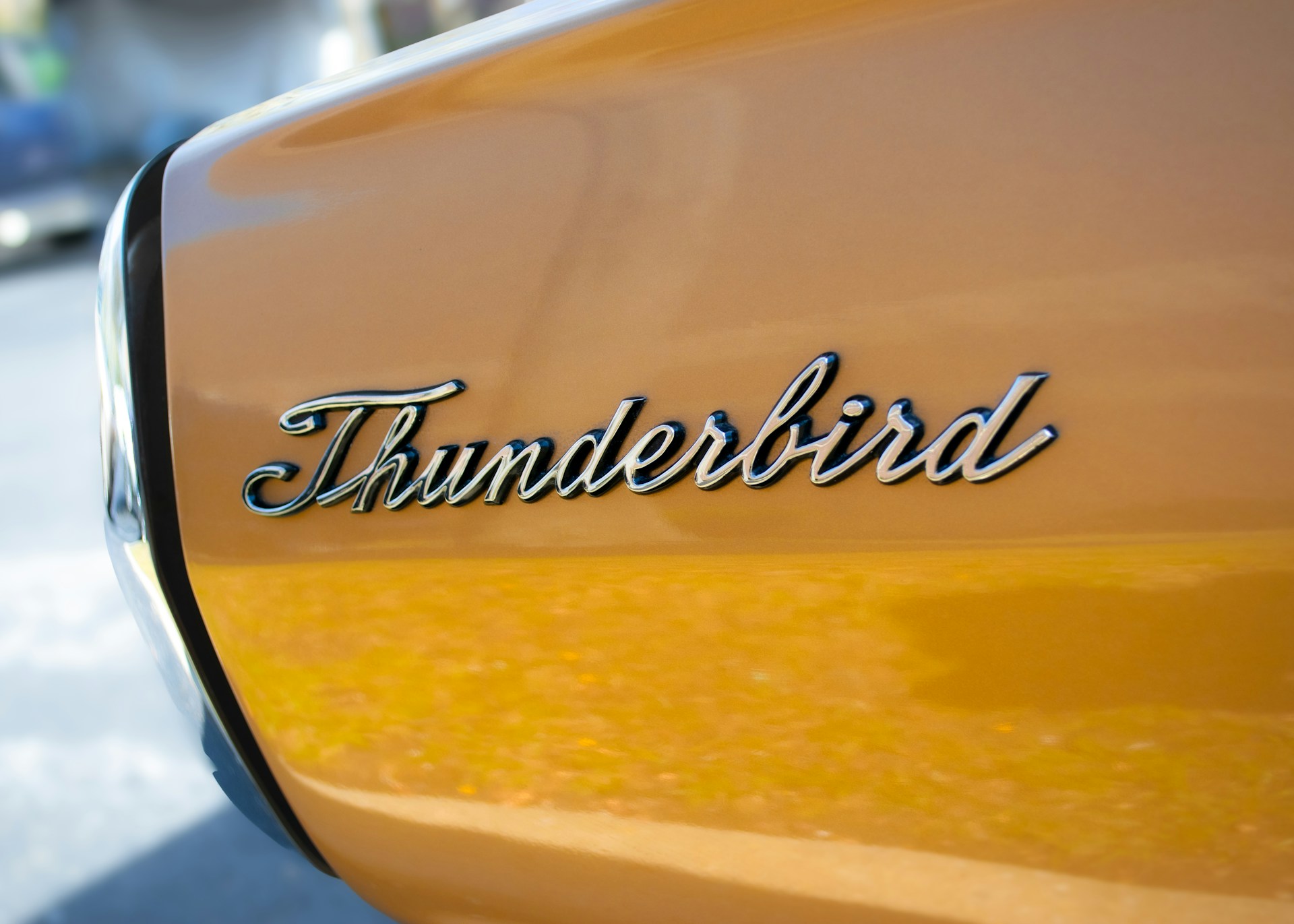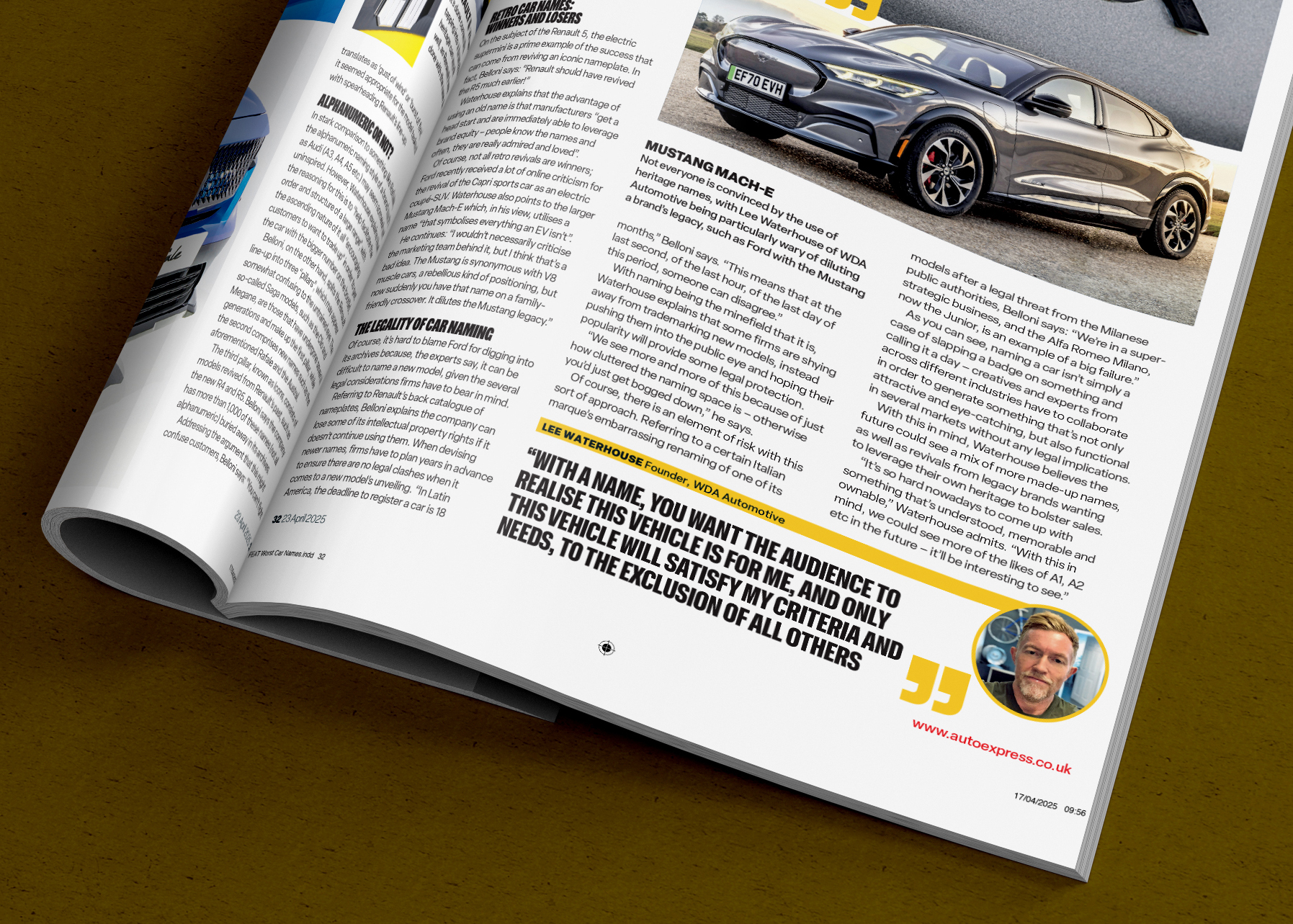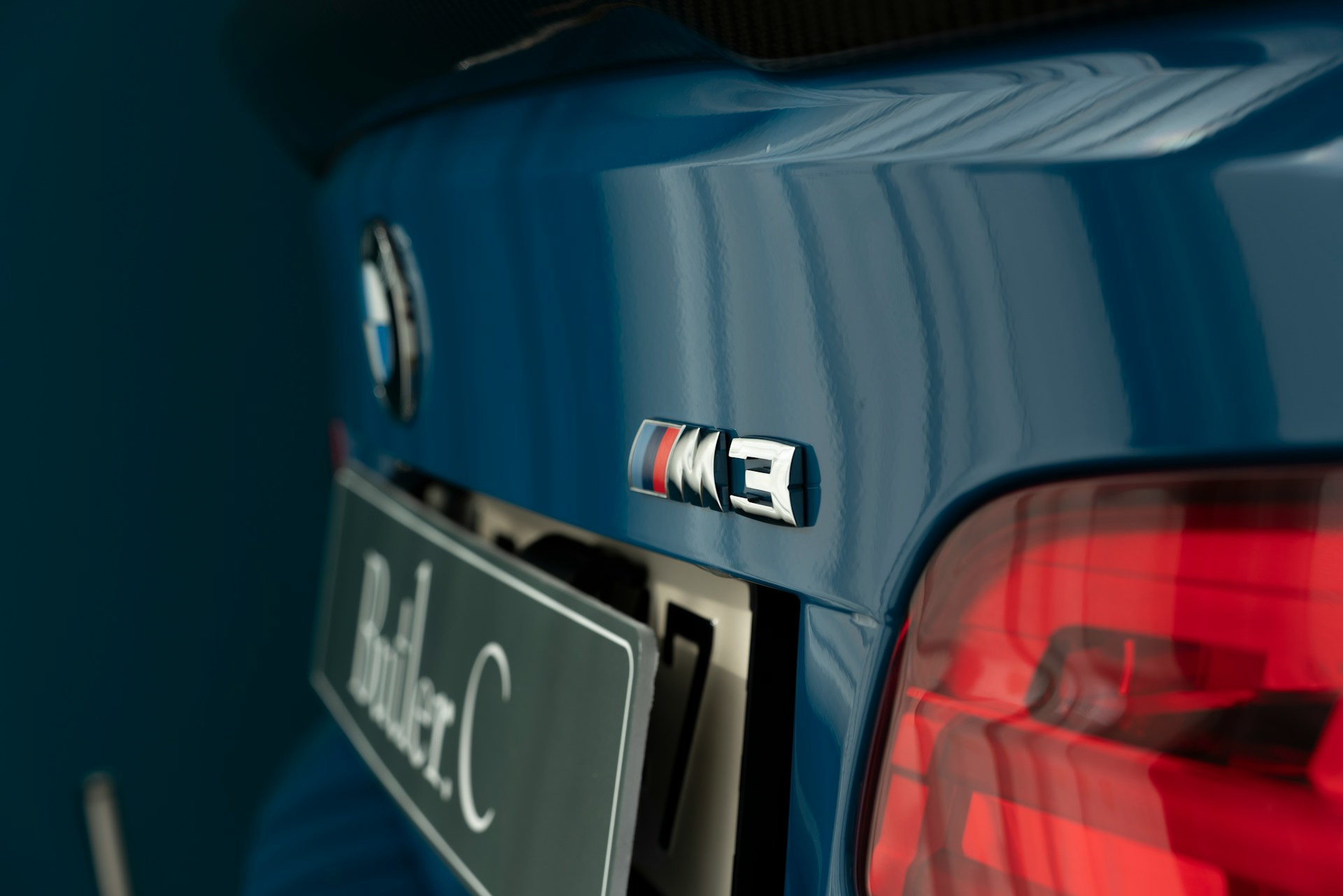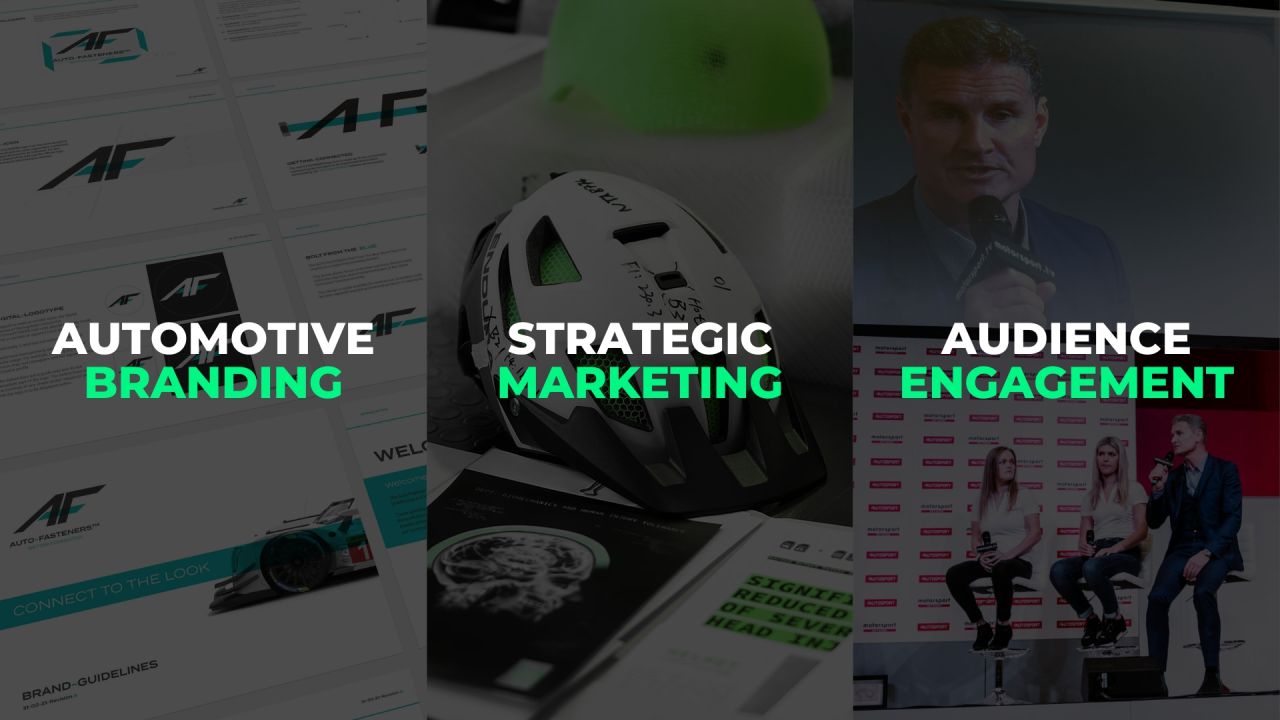When it comes to the automotive world, few things are as instantly recognisable or as hotly debated as the name that sits on a car’s boot lid. A car’s name is more than just a label; it’s a powerful tool that can make or break a model, shape perceptions, and even define an entire brand’s legacy. That’s why we were thrilled when our very own CEO, Lee Waterhouse, was invited by Auto Express to share his expertise on the art and science of car naming.
In this exclusive feature, Lee sat down with journalist Thomas Jervis to discuss why car names matter, the emotional and strategic thinking behind them, and what the future holds for automotive branding. Here, we dive deeper into the conversation and reveal the expert secrets that shape the names you see on the road.
Why Car Names Matter: More Than Just a Badge
As Lee puts it, “The name of a car, the manufacturer, the company-it’s all about creating a connection with the audience.” In a world where consumers are bombarded with choices, a car’s name is often the very first touchpoint. It’s the tip of the iceberg, carrying with it all the associations, memories, and aspirations that a brand wants to convey.
A great car name does more than identify a product. It positions the vehicle in the market, signals who it’s for, and if done right-sparks an emotional response. “If you’ve done the job right in terms of the naming process, you’ve identified the audience and created something that immediately connects with them, while giving clear differentiation,” Lee explains. “You want the audience to realise: this vehicle is for me, and only this vehicle will satisfy my criteria and desires, to the exclusion of all other brands.”
In the fiercely competitive automotive sector, that differentiation is everything.
The Emotional Power vs. The Practicality of Naming
Car names can be loaded with emotion, heritage, and meaning or they can be coldly functional. Think of the difference between a Ford Mustang and an Audi A4. One conjures images of American muscle and freedom; the other, a logical progression in a well-ordered range.
Lee acknowledges this trade-off: “Alphanumeric names like A3, A4, A5 help facilitate the order and structure of a large range. They can encourage customers to want to trade up, but they can also be considered a little boring for some.” The emotional connection is often missing with these names, but brands can inject personality and excitement through marketing and positioning.
Still, Lee warns that relying too heavily on alphanumerics can turn a car from an object of desire into an appliance. Think of how we refer to washing machines or TVs by model numbers. The challenge is to balance clarity and structure with the spark that makes a car name memorable.
The Rise (and Risk) of Heritage Names
One of the most fascinating trends in recent years is the revival of classic car names. From the Renault 5 to the Ford Capri, brands are digging into their archives to leverage the equity of names that already have a place in the public’s heart.
Why do this? Lee explains, “Historic brand names have got brand equity built in that manufacturers can immediately leverage. It’s a quick win in terms of marketing and promotion, because people already know and love the names.”
But it’s not without risk. The Ford Mustang Mach-E is a prime example: “The Mustang is synonymous with V8 muscle cars, a rebellious kind of positioning. Suddenly, you’ve got that name on a family-friendly electric crossover. This runs the risk of diluting the legacy of the name among the die-hard crowd,” Lee says.
Sometimes, controversy can even be beneficial, sparking conversation and keeping a brand in the spotlight. But as Lee points out, “Not all revivals are well received. If you upset the core audience, you need to be sure the new market is big enough to make up for it.”
The Global Minefield: Language, Culture, and Legalities
Naming a car isn’t just a creative exercise. It’s a complex, global challenge. What works in one market might flop in another due to language, culture, or even trademark issues. Lee recounts how a clever play on words for a UK client didn’t translate overseas: “The brand position was a pun that worked really well in the UK, but as soon as you go into another language, it just doesn’t work.”
There have been some infamous naming missteps over the years – like the Chevrolet Nova, which unintentionally translated to “no go” in Spanish-speaking markets, or the Mitsubishi Pajero, which had to be renamed due to inappropriate slang connotations (look it up…). Even million-dollar supercars aren’t immune: Reventón, for example, can mean “blowout” or “flat tire” in some regions. These examples highlight why global automotive brands often use different model names depending on the market.
On top of that, the legal landscape is more crowded than ever. “You used to go full trademark, global,” Lee says. “Now, it’s often not feasible. The naming space is so cluttered, you can get bogged down. Sometimes it’s better to get the name out there and let its popularity provide some legal protection.”
Even hashtags and domain names can be stumbling blocks, everything is already taken!
The Future: Creativity vs. Constraints
So, where does car naming go from here? Lee predicts we’ll see a mix of strategies: more made-up names (as the pool of available words shrinks), continued use of alphanumerics, and more heritage revivals as brands look for a shortcut to recognition.
But the biggest challenge remains: “The hardest thing is satisfying all the interplaying considerations – legal, linguistic and cultural – while still creating something punchy, memorable, creative, and original. That’s the bit that interests me.” It’s also exactly why brands turn to a specialist agency like WDA Automotive – because getting it right takes deep sector understanding, strategic thinking, and experience navigating the global landscape.
As the automotive industry shifts toward electrification and new technologies, even the cues we use to name cars are changing. “Right now, putting an ‘E’ or ‘EQ’ on a badge signals electric, but as EVs become the norm, that won’t be a differentiator anymore. It’ll just be the standard.”
Lessons for Automotive Brands
Lee’s insights from the Auto Express interview echo what we see every day at WDA Automotive: car naming is both an art and a science. It’s about understanding your audience, navigating a global landscape, and finding that perfect balance between originality and familiarity.
Whether you’re reviving a legend or inventing something new, the name you choose will shape perceptions for years to come.
Read the article over at AutoExpress Here
Need help with your automotive brand strategy?
At WDA Automotive, we help brands stand out in a crowded market-starting with the name on the badge. Get in touch to find out how we can help your business drive forward.


















